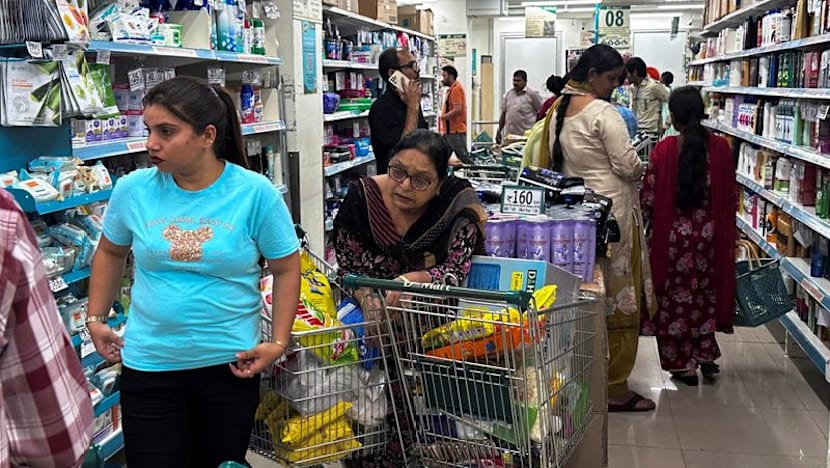Business
India Launches Major GST Overhaul to Ease Cost of Living

The Indian government is set to implement a significant overhaul of the Goods and Services Tax (GST), the most extensive reform since its introduction eight years ago. This change aims to alleviate the rising cost of living for millions of citizens. Prime Minister Narendra Modi announced the plan last month on Independence Day, promising to reduce taxes on essential goods ahead of the Diwali festival in October 2023.
Details of the GST Reform
The revised GST framework will simplify the current system by consolidating it from four tax categories—ranging from 5 to 28 per cent—to just two rates: 5 per cent and 18 per cent. Items such as talcum powder, toothpaste, and shampoo will see their tax rate drop from 18 to 5 per cent. Additionally, the GST on essential items like butter is expected to decrease from 12 per cent to 5 per cent. Meanwhile, luxury goods, including a packet of cigarettes, could see taxes rise to 40 per cent from the current 28 per cent.
For Mumbai resident Bajeer Khan, whose monthly salary is around US$300, this overhaul brings hope. Khan struggles with escalating living expenses that have outpaced his income over the years. “It will be good if they do reduce the GST to 5 per cent. If this happens, maybe the cost of living will come down,” he remarked.
Economic Implications and Challenges
While the government anticipates that these changes will make everyday items more affordable, they could also lead to lower revenue collections for both central and state governments. According to Madhavi Arora, chief economist at financial services provider Emkay Global, this overhaul could result in a revenue decline of up to 0.4 per cent of India’s gross domestic product (GDP). Nevertheless, she believes that increased consumer spending could eventually offset this loss, benefiting various sectors, including consumer goods and automobile manufacturing.
Some opposition-led states are voicing concerns about potential revenue losses and are demanding either compensation or greater flexibility to adjust their own tax rates. The mobile phone industry is particularly attentive to the changes. Business owners like Mihir Prajapati, owner of Maitri Mobile, are advocating for mobile phones to be classified as essential items under the new 5 per cent GST rate. Prajapati expressed optimism, stating, “If the GST rate comes down, then we can also plan to open another shop and expand our business.”
The Indian GST Council is expected to finalize the list of items eligible for tax cuts in a meeting scheduled for this week. As the government moves forward with these reforms, the balance between easing the financial burden on consumers and maintaining adequate revenue for public services remains a key concern.
-

 Business5 months ago
Business5 months agoKenvue Dismisses CEO Thibaut Mongon as Strategic Review Advances
-

 Lifestyle4 months ago
Lifestyle4 months agoHumanism Camp Engages 250 Youths in Summer Fest 2025
-

 Sports4 months ago
Sports4 months agoDe Minaur Triumphs at Washington Open After Thrilling Comeback
-

 Sports5 months ago
Sports5 months agoTupou and Daugunu Join First Nations Squad for Lions Clash
-

 Top Stories5 months ago
Top Stories5 months agoColombian Senator Miguel Uribe Shows Signs of Recovery After Attack
-

 World5 months ago
World5 months agoASEAN Gears Up for Historic Joint Meeting of Foreign and Economic Ministers
-

 Health4 months ago
Health4 months agoNew Study Challenges Assumptions About Aging and Inflammation
-

 Business5 months ago
Business5 months agoOil Prices Surge Following New EU Sanctions on Russia
-

 Entertainment4 months ago
Entertainment4 months agoDetaşe-Sabah Violin Ensemble Captivates at Gabala Music Festival
-

 Entertainment4 months ago
Entertainment4 months agoBaku Metro Extends Hours for Justin Timberlake Concert
-

 Top Stories5 months ago
Top Stories5 months agoRethinking Singapore’s F&B Regulations Amid Business Closures
-

 Business5 months ago
Business5 months agoU.S. House Approves Stablecoin Bill, Sends to Trump for Signature









